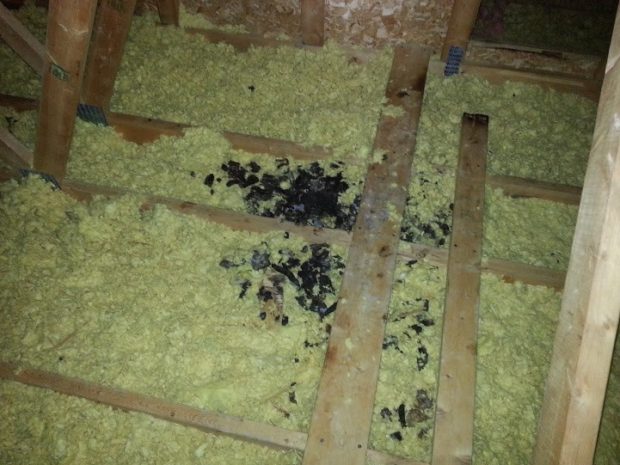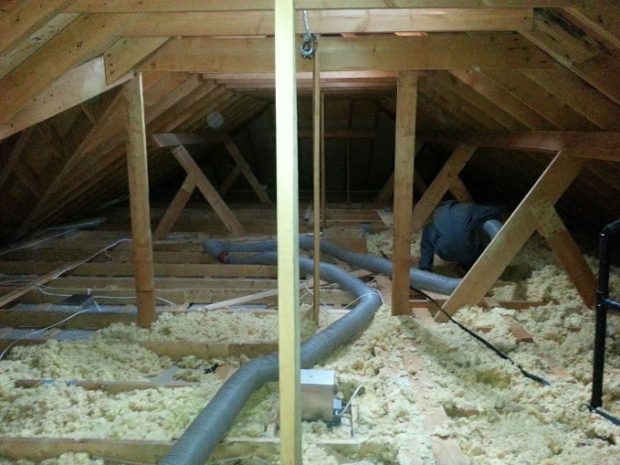Raccoons are very adaptable creatures. They can get into anywhere and eat anything. But, like any other living thing all that food has to eventually end up somewhere. Raccoon feces can be very dangerous to the air quality of your home. Having raccoon latrines inside or around your home can lead to all sorts of difficulties.

A raccoon latrine inside an attic.
Raccoons always defecate in the same place
It sounds strange, a wild animal using the same area to relieve themselves. But, raccoons will only use a small area called a latrine to do their business. The accumulation of feces can result in a pungent odour. Generally, raccoon droppings resemble that of dog droppings. However, there’s one clear difference. Raccoon poop will have undigested food in it. So, there will be remnants of their previous meals. Latrines can commonly be found at tree bases, stumps, inside chimneys, under decks and in attics.
It’s important to clean raccoon latrines they carry lots of disease
Raccoon roundworm or Baylisascaris is the most commonly known parasite associated with raccoon feces. Eggs found in raccoon feces can infect humans if ingested. Children are most at risk because of their tendency toward putting objects in their mouths. Symptoms include loss of muscle control, liver complications, fatigue and blindness.
Giardia is a parasite that can be transmitted to any animal. It contaminates water, soil and any surface the virus might touch. Humans become infected by ingesting infective cysts. Symptoms include nausea, abdominal cramps, diarrhea and dehydration.
Leptospirosis is a bacterial infection found in raccoon urine. Symptoms are aching muscles, headache, high fever, jaundice and diarrhea.

Removing soiled insulation from an attic contaminated by raccoon latrines
That’s why it’s important to properly clean latrines
- Wear disposable rubber gloves and rubber boots you can scrub.
- Wear an N95-rated respirator.
- Use spray bottle of water to mist and remove dust.
- Shovel feces and place in bag.
- Treat with boiling water.
- Disinfect area.
- Thoroughly clean clothes, shovel and boots.
- Or just call a professional.
Ottawa raccoon removal
It’s important to properly remove any raccoon latrines. Failure to observe safety protocols could put you and your family at increased health risk. Professionals have the equipment and know-how to prevent any disease from spreading. This is not a do-it-yourself job. If raccoon feces are ingested it can be very dangerous.
Removing raccoons from your attic, chimney and property is the best way to prevent a build of raccoon droppings. Upon discovering a raccoon latrine or evidence of a raccoon den site in your home contact Skedaddle Humane Wildlife Control.
Skedaddle Humane Wildlife Control can safely remove raccoons and droppings from your home.
Call today! 1-888-592-0387


